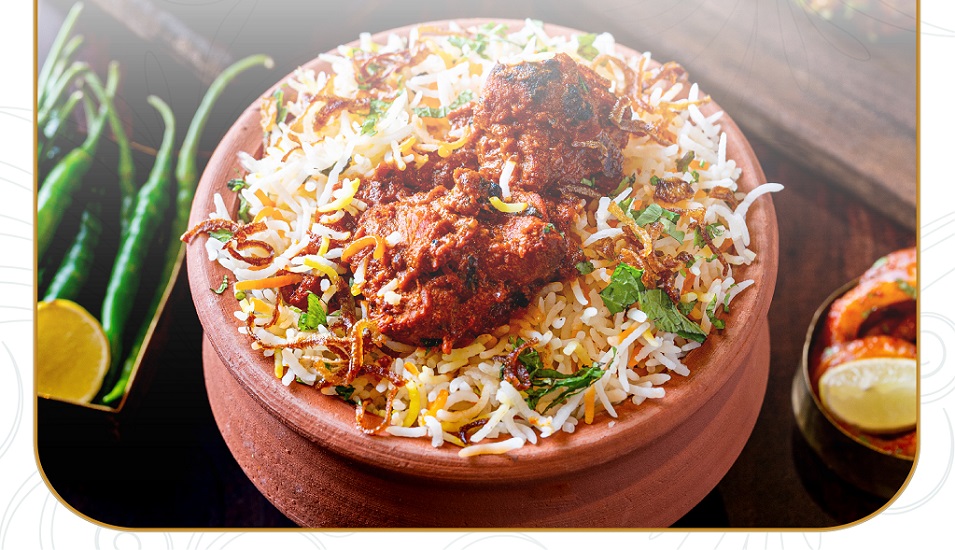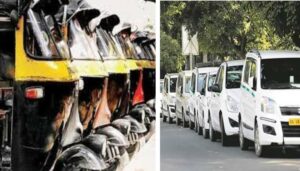Pune: Biryani’s Link to the Ramayana Explored in Depth at Gokhale Institute’s History Literature Festival

Pune, 10th February 2024: The second session on the first day of the History Literature Festival, being held at the Gokhale Institute of Politics and Economics, featured historian Pushpesh Pant, archaeologist Kurush Dalal, and economist Pradeep Apte engaging in a conversation about India’s rich food culture. The conversation revolved around topics such as the impact of foreign eatables on the Indian food culture, variations in Indian food culture based on regional changes, its economical dimensions, etc.
As much as India’s food culture is abundantly decorated, so is its history rich and varied in nature. That’s why, India’s history cannot be understood without knowing the history of its food culture. The second session of the festival was held on the ‘History of Food,’ discussed by historian and food critic Pushpesh Pant, archaeologist and culinary anthropologist Dalal along with researcher and economist Apte.
The session commenced with the history of man’s relationship with the food. While speaking about the same, Dalal said, “It might come as a disappointment, but the history of man’s food culture was not because of his love for the food, but as a necessity for survival. Man became a farmer for the security of food, otherwise he was always a hunter.”
Dalal also drew the attention of the audience as he threw light upon the declining importance of agriculture. He said, “Today, no one really wants to become a farmer. In fact, a farmer these days would rather like to work as a liftman in any of Mumbai’s buildings, than a farm. He is farming, because he does not have a choice.”
The crisis that India is facing in its agricultural sector is quite serious. According to the 2011 census, 2,000 farmers in India travel to the city every day to find an alternative to farming. He further cautioned people against thinking negatively about the farmers. He emphasized that, “When larger tribes drove off the smaller tribes out of their natural habitats for resources, in a way they turned their faces towards agriculture. The only purpose of agriculture and animal husbandry is to have a maximum amount of food supply in order to feed the growing population. That’s how culture and economy have been created.”
While agreeing to Dalal’s opinion, Apte said, “Agriculture, animal husbandry and man’s relationship with the both are interdependent on each other. Just as humans have benefitted with from agriculture and animal husbandry, those crops and animals have also benefited from man in a vice-versa way.”
Pant presented the economic dimensions of food. “The Government of India had declared 2023 as the ‘Year of Millets.’ Once upon a time, millets were considered as a poor man’s food, but now they are being acknowledged as the answer to the world’s food security questions.”
Till 1965, 65% of the crops were millets, while coming down to only 24% now. Dalal informed that the Government is again asking farmers to switch to millets for the global climatic changes.
Apte further established the correlation between the availability of food and its market value. He said that a few years back, chicken’s meat was more expensive than that of a goat. But due to modern poultry, chicken’s meat has become cheaper. Apte also informed that the inculcation of rice in India’s food culture has continued to increase due to its price range and availability.
While speaking on the extremity of growing vegetarianism, Pant pointed out once upon a time people were fully non-vegetarians. “There is no need to go back to ancient times for that. There is evidence that chicken meat was being eaten even during the Harappa civilization,” he said.
The history of ‘Biryani’ was also openly discussed on the occasion. On a thorough study about the exact origin of Biryani, he claimed that one of the ‘Pulao’ namely ‘Brinj Pulao’ cooked by Bahadur Shah Jaffar’s cook for him, was an earlier form of Biryani. Therefore, he put an end to the ‘Pulao v/s Biryani’ controversy by saying that, instead of giving a tag of ‘Veg Biryani’ to the Pulao, it is best to call a Biryani, a ‘Non-Vegetarian Pulao.’
Apte threw light upon Biryani’s reference in the Ramayana. He claimed that Sita had promised to offer cooked meat with rice as a ‘Prasad’ to the Ganges.
While explaining the importance of crops like rice and wheat, Dalal informed that not even 5% of the current population will be able to survive, if something happens to these crops. According to him, the popular South Indian ‘Idli’ was once made only from Urad Dal. But as soon as Urad Dal became expensive and rice became cheaper, it replaced the Urad Dal. Similarly, Tur dal was replaced with Moong Dal in ‘Varan.’
Pant convinced the audience that food is not just related to economics or availability, but to human identity. For that, he presented a list of diverse food cultures in rice. He argued that food culture is related to people’s identity. The millets which were once universally left as the food for the poor, are now being bought by people even at high prices as a vital source of protein.
Apte explained how the crops brought to India by the Europeans have created a difference in the Indian food culture. He said, “Certain varieties of brinjals, tomatoes, potatoes and chillies have become an integral part of the Indian food culture without being of India origin. 70-80 years ago, tomatoes weren’t allowed in Indian households. Because the tomatoes brought by the Portuguese were mainly cooked with meat and were given the name of ‘meat fruit’ in most places. But today, tomatoes have replaced tamarinds and pomegranates and so have the chillies replaced all the other spicy foods.
Adding to the same, Dalal presented an interesting history of the legendary ‘Vada Pav.’ He said, “Bread is called ‘Pav’ in the Portuguese language. Portuguese are the ones who brought potatoes and groundnuts to India. Groundnut oil is produced from the same. The ‘Vadas’ are fried in the same oil. Gram flour and ginger came from South Asia to India. Maharashtra added only turmeric and coriander to it.” Therefore, Dalal joked that we can call ‘Vada Pav’ a Portuguese dish.
Dalal also stressed upon the future challenges in food security. He said that differences will be seen between the growth rate of agricultural production and population by 2035. According to a study, by 2055 the situation will become so worse, that there would be riots for the sake of food.
Overall, a flavourful discussion was unravelling the rich food culture of India as a whole was witnessed, followed by the final session of the day that delved deep into the history of the Indian Classical Music by Radhika Joshi, Radha Kapuria and Partho Datta.





